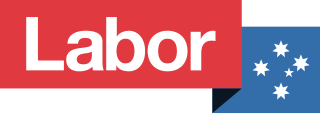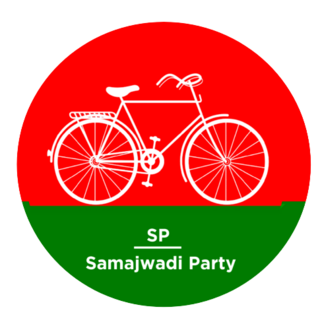 |
|---|
|
Related topics |
Parliamentary elections were held in Cuba on 15 March 1942. [1] The Liberal Party and the Democratic Party both won 21 seats in the House of Representatives.
 |
|---|
Parliamentary elections were held in Cuba on 15 March 1942. [1] The Liberal Party and the Democratic Party both won 21 seats in the House of Representatives.
| Party | Votes | % | Seats | |
|---|---|---|---|---|
| Liberal Party of Cuba | 21 | |||
| Democratic Party | 21 | |||
| Partido Auténtico | 10 | |||
| Communist Revolutionary Union | 3 | |||
| ABC | 2 | |||
| Total | 57 | |||
| Registered voters/turnout | 1,977,001 | – | ||
| Source: Nohlen | ||||

The Australian Labor Party (ALP), also simply known as Labor, is the major centre-left political party in Australia, one of two major parties in Australian politics, along with the centre-right Liberal Party of Australia. The party has been governing federally since being elected at the 2022 election, and with political branches in each state and territory, they are currently in government in New South Wales, Queensland, South Australia, Victoria, Western Australia, the Australian Capital Territory, and the Northern Territory – Tasmania is the only state or territory where they currently form the opposition. It is the oldest political party in Australia, being established on 8 May 1901 at Parliament House, Melbourne, the meeting place of the first federal Parliament.

The prime minister of Israel is the head of government and chief executive of the State of Israel.
The Scottish National Party is a Scottish nationalist and social democratic political party in Scotland. The SNP supports and campaigns for Scottish independence or secession from the United Kingdom and for Scotland's membership of the European Union, with a platform based on civic nationalism. The SNP is the largest political party in Scotland, where it has the most seats in the Scottish Parliament and 45 out of the 59 Scottish seats in the House of Commons at Westminster, and it is the third-largest political party by membership in the United Kingdom, behind the Labour Party and the Conservative Party. The current Scottish National Party leader is Humza Yousaf, who replaced Nicola Sturgeon after a leadership election on March 27, 2023.

The Libertarian Party (LP) is a political party in the United States that promotes civil liberties, non-interventionism, laissez-faire capitalism, and limiting the size and scope of government. The party was conceived in August 1971 at meetings in the home of David F. Nolan in Westminster, Colorado, and was officially formed on December 11, 1971, in Colorado Springs, Colorado. The organizers of the party drew inspiration from the works and ideas of the prominent Austrian school economist, Murray Rothbard. The founding of the party was prompted in part due to concerns about the Nixon administration, the Vietnam War, conscription, and the introduction of fiat money.

The Republican Party, also referred to as the GOP, is one of the two major contemporary political parties in the United States. The GOP was founded in 1854 by anti-slavery activists who opposed the Kansas–Nebraska Act, which allowed for the potential expansion of chattel slavery into the western territories. It has been the main political rival of the Democratic Party since the mid-1850s. Like them, the Republican Party is a big tent of competing and often opposing ideologies. Presently, the Republican Party contains prominent conservative, centrist, populist, and right-libertarian factions.
The Conservative Party, officially the Conservative and Unionist Party and also known colloquially as the Tories, is one of the two main political parties in the United Kingdom, along with the Labour Party. It is the current governing party, having won the 2019 general election. It has been the primary governing party in the United Kingdom since 2010. The party is on the centre-right of the political spectrum, and encompasses various ideological factions including one-nation conservatives, Thatcherites, and traditionalist conservatives. The party currently has 355 Members of Parliament, 260 members of the House of Lords, 9 members of the London Assembly, 31 members of the Scottish Parliament, 16 members of the Welsh Parliament, 4 directly elected mayors, 30 police and crime commissioners, and around 6,619 local councillors. It holds the annual Conservative Party Conference.

The Knesset is the unicameral legislature of Israel. As the supreme state body, the Knesset is sovereign and thus has complete control of the entirety of the Israeli government.

The Bharatiya Janata Party is a political party in India, and one of the two major Indian political parties alongside the Indian National Congress. Since 2014, it has been the ruling political party in India under Narendra Modi, the incumbent Indian prime minister. The BJP is aligned with right-wing politics, and its policies adhere to Hindutva, a Hindu nationalist ideology. it has close ideological and organisational links to the Rashtriya Swayamsevak Sangh (RSS). As of March 2023, it is the country's largest political party in terms of representation in the Parliament of India as well as state legislatures.

The Indian National Congress (INC), colloquially the Congress Party but often simply the Congress, is a political party in India with widespread roots. Founded in 1885, it was the first modern nationalist movement to emerge in the British Empire in Asia and Africa. From the late 19th century, and especially after 1920, under the leadership of Mahatma Gandhi, the Congress became the principal leader of the Indian independence movement. The Congress led India to independence from the United Kingdom, and significantly influenced other anti-colonial nationalist movements in the British Empire.

Likud, officially known as Likud – National Liberal Movement, is a major Conservative right-wing political party in Israel. It was founded in 1973 by Menachem Begin and Ariel Sharon in an alliance with several right-wing parties. Likud's landslide victory in the 1977 elections was a major turning point in the country's political history, marking the first time the left had lost power. In addition, it was the first time in Israel that a right-wing party won the plurality of the votes. After ruling the country for most of the 1980s, the party lost the Knesset election in 1992. Likud's candidate Benjamin Netanyahu won the vote for Prime Minister in 1996 and was given the task of forming a government after the 1996 elections. Netanyahu's government fell apart after a vote of no confidence, which led to elections being called in 1999 and Likud losing power to the One Israel coalition led by Ehud Barak.

The Communist Party of India (Marxist) (abbreviated as CPI(M)/CPIM/CPM) is a communist political party in India. It is the largest communist party in India in terms of membership and electoral seats and one of the national parties of India. The party emerged from a split in the Communist Party of India (CPI) on 7 November 1964. As of 2022, CPI(M) is a part of ruling alliances in three states — the Left Democratic Front in Kerala, Mahagathbandhan in Bihar, and the Secular Progressive Alliance in Tamil Nadu. CPIM has representation in the legislative assemblies of 8 states.

The Samajwadi Party is a socialist political party in India. Headquartered in New Delhi, the party has mass base in Uttar Pradesh along with significant presence in other states as well. With a secular and democratic ideology, the Samajwadi Party believes in creating a socialist society, which works on the principle of equality. The party has been able to form the government in the state of Uttar Pradesh four times - three times under Chief Minister Mulayam Singh Yadav, the fourth and recent being Chief Minister Akhilesh Yadav’s full majority government in 2012-2017 Uttar Pradesh Legislative Assembly. The coalition of party and it’s alliance partners SP+ has one of the largest vote base in the state of Uttar Pradesh in terms of collective voting pattern in the state-based electoral system, with more than 37% vote share in 2022 elections.

The All India Trinamool Congress is an Indian national political party with great influence in the state of West Bengal. It is a congress party founded by the former Minister of Railways of the Republic of India Mamata Banerjee (Didi) on 1 January 1998 as a breakaway faction from the Indian National Congress. The party has won a three-time majority in the West Bengal Legislative Assembly and has been the ruling party in West Bengal since 20 May 2011. AITC is led by Mamata Banerjee as the chairperson of the party.
An independent or non-partisan politician is a politician not affiliated with any political party or bureaucratic association. There are numerous reasons why someone may stand for office as an independent.

The Democratic Party is one of two major contemporary political parties in the United States. Founded in 1828, it was predominantly built by Martin Van Buren, who assembled politicians in every state behind war hero Andrew Jackson, making it the world's oldest active political party. Its main political rival has been the Republican Party since the 1850s, with both parties being big tents of competing and often opposing viewpoints. Modern American liberalism — a variant of social liberalism — is the party's majority ideology. The party also has notable centrist, social democratic, and left-libertarian factions.

The Liberal Democrats are a liberal political party in the United Kingdom. Since the 1992 general election, with the exception of the 2015 general election, they have been the third-largest UK political party by the number of votes cast. They have 14 Members of Parliament in the House of Commons, 83 members of the House of Lords, four Members of the Scottish Parliament and one member in the Welsh Senedd. The party has over 2,500 local council seats. The party holds a twice-per-year Liberal Democrat Conference, at which party policy is formulated. In contrast to its main opponents' conference rules, the Lib Dems grant all members attending its Conference the right to speak in debates and vote on party policy, under a one member, one vote system. The party also allows its members to vote online. The party served as the junior party in a coalition government with the Conservative Party between 2010 and 2015; with Scottish Labour in the Scottish Executive from 1999 to 2007, and with Welsh Labour in the Welsh Government from 2000 to 2003 and from 2016 to 2021.
The Labour Party is a political party in the United Kingdom that has been described as an alliance of social democrats, democratic socialists and trade unionists. The Labour Party sits on the centre-left of the political spectrum. In all general elections since 1922, Labour has been either the governing party or the Official Opposition. There have been six Labour prime ministers and thirteen Labour ministries. Since the 2010 general election, it has been the second-largest UK political party by the number of votes cast, behind the Conservative Party and ahead of the Liberal Democrats. The party holds the annual Labour Party Conference, at which party policy is formulated.

The 2015 United Kingdom general election was held on Thursday, 7 May 2015 to elect 650 Members of Parliament to the House of Commons. It was the only general election held under the rules of the Fixed-term Parliaments Act 2011. Local elections took place in most areas on the same day.

The 2019 United Kingdom general election was held on Thursday, 12 December 2019. It resulted in the Conservative Party receiving a landslide majority of 80 seats. The Conservatives made a net gain of 48 seats and won 43.6% of the popular vote – the highest percentage for any party since 1979.